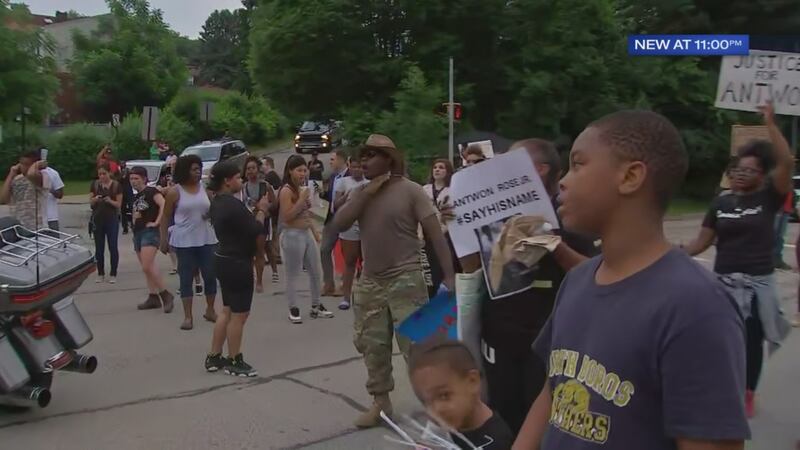PITTSBURGH — The city of Pittsburgh announced a new approach to handling street protests after gatherings have blocked numerous roads in the metropolitan area over the past several weeks.
Protesters demanding justice for the June police shooting of Antwon Rose in East Pittsburgh have closed down thoroughfares in the city and even the parkway.
RELATED STORY: Man facing charges after driving car through rally for Antwon Rose
A handful of arrests have been made during those protests.
City representatives announced new guidelines Thursday, saying they will still allow people to protest.
TRENDING NOW:
- Woman barricaded in Etna home, police surround house
- Police identify woman they say struck man with car while aiming for someone else
- Beachgoers form human chain to pull people out of water at N.C. beach
- Severe Weather Team 11 Interactive Radar
Protesters will not be allowed to block hospitals, special events and the entrances or exits of tunnels and bridges.
They also will not be allowed to shut down critically important intersections at any time and certain other intersections during morning and evening rush hours.
Pittsburgh police will also formally adopt de-escalation practices and tactics that have been proven to reduce tension and enhance safety during these demonstrations.
The policy will be put to the test Friday outside the Allegheny County Courthouse.
To get breaking news alerts like this one, download the Channel 11 News app HERE.

Protesters told Channel 11 they haven't always felt safe and some have been hurt by inpatient drivers.
There are also red zones for downtown and the North Side, which means certain major intersections can never be blocked. That includes the Boulevard of the Allies where two protesters were charged with attacking a driver last week.
All local major highways are also part of the Red Zone.
"Yes they will let us practice our freedom of speech but, why are going to confine it to 15 minutes at a time, spend in red areas and yellow areas?" said Christian Carter, co-founder of Youth Power Collective.
The president of the FOP in Pittsburgh released a statement in response to the guidelines:
"It seems the city is being significantly compromising to protestors so they can have their voice heard while maintaining public safety simultaneously. It's a new approach. Time will tell if it's effective."
Cox Media Group







